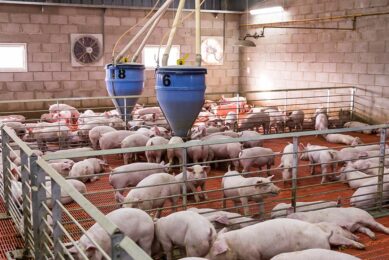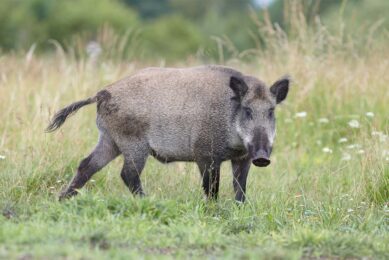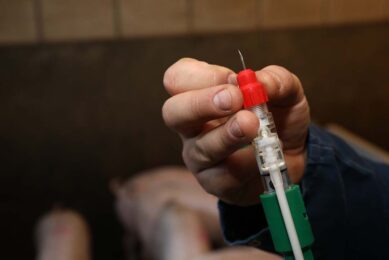ASF China: Kitchen waste blamed; outbreaks in the south

The Chinese ministry of agriculture has identified various reasons for the quick introduction and spread of African Swine Fever: swill feeding, long-distance transports and in an earlier stage, porcine plasma. All current practices have to change.
In the search of the causes of the African Swine Fever (ASF) in China, the country’s Ministry of Agriculture and Rural Affairs (MARA) stated last week that it is banning the feeding of kitchen waste to pigs. The measure follows a Chinese suspension of the usage of Spray-Dried Porcine Plasma (SDPP) for use in animal feed, last month.
Almost 66% of cases related to kitchen waste
News agency Reuters reported about a ministry statement, in which 62% of the first 21 outbreaks were related to the feeding of kitchen waste. “These outbreaks were mostly located in urban-rural boundaries, and were particularly evident in several cases in early September in Anhui province.”
The statement added that the virus was also detected in swill feed fed to pigs on a farm in Inner Mongolia: “After the provinces with outbreaks and neighbouring provinces completely banned feeding of kitchen waste to pigs, the epidemic was greatly reduced, which fully demonstrates the importance of completely prohibiting the feeding of waste.”
Read everything about African Swine Fever on the ASF minipage
The ministry added that it will set up a registration system for vehicles transporting live pigs, poultry and other livestock to control the spread of the disease. According to the ministry, long-distance transport of live pigs has been a major channel for transmitting ASF across the country.
Recently reported ASF outbreaks in China
The most recent outbreaks that are officially reported from China come from southern provinces. Those outbreaks, reported to the World Organisation for Animal Health (OIE) occurred in Yunan, Guizhou and Hunan provinces. The most recent outbreak was reported on October 28 from Hunan province on a farm with over 7,500 pigs. The total official count is now at 53 reported outbreaks involving over 111,000 pigs.
It is generally assumed that with regard to ASF there is more going on in China than is officially reported. That, in combination with the descent of the virus to southern China, is creating nervousness amongst pig producers in Vietnam and other countries in South East Asia.
The virus will not only affect swine production but likely also food security as markets may not be supplied in time for the Lunar New Year in February next year. This will not only affect Chinese markets but may also affect the situation in Vietnam.
Quick detection of ASF outbreaks
News agency Reuters also reported that, in order to quicker detect ASF outbreaks, China will also mandate more laboratories to conduct ASF tests.

Read more about pig health in the Pig Progress Health Tool
The ministry said that animal disease control departments below the provincial level, laboratories in universities, and 3rd-party laboratories, will be able to conduct tests on samples for the deadly virus, with the approval of provincial authorities.
 Beheer
Beheer








 WP Admin
WP Admin  Bewerk bericht
Bewerk bericht